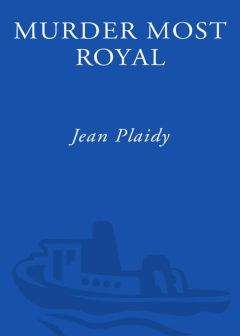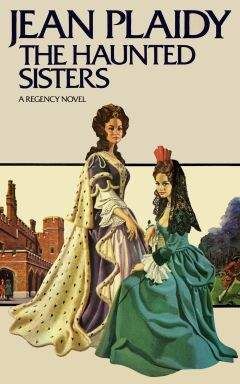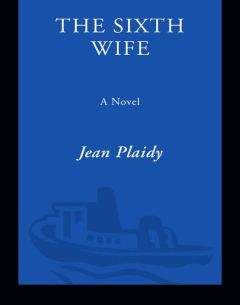“I see you are angry with me,” said Mary. “You are cold. When I give you my hand, you look the other way.”
“I am deeply concerned for you. You must remember the precious burden you carry. You must be calm … live quietly.”
“What would you have me do, Philip, my love? There is nothing I would not do for you. Command me, I beg of you. Shall I send for Gardiner?”
“There is no need. I would have you rest. It is better that the sermon should be preached by my friar. The people will then see that I am not the monster they believe me to be, for they will know that a servant of mine would not dare preach such a sermon without my consent.”
“The people do not know you, Philip,” she said passionately. “They say ugly things of you which are … untrue … so untrue.”
He looked at her anxiously. How many rumors had she heard? He had endured her cloying devotion; must he yet suffer from her bitter jealousy?
In the Palace at Valladolid Juana told Carlos of the news from England.
“You are to have a brother, Carlos. He will be half English.”
Carlos did not care whether or not he had a brother; he was angry with the English because they had not killed his father, as people had believed they might.
“He will come home,” said Juana. “As soon as the baby is born he will come back to Spain.”
“That will be a long time yet,” said Carlos.
He enjoyed those days. He was a little less wild, although he gave way to bouts of frenzy when any suggested he should learn his lessons. Always he would fly to Juana for protection, calling on her to save him from the monsters.
He continued to call himself Little One; nor would he allow even Juana to try weaning him from the habit.
His tutor, Luis de Vives, felt that, as it was almost impossible to teach Carlos anything, there was no point in forcing matters. To force the boy meant kicking, unpleasant scenes, and injuries to his health, which in their turn meant no lessons. There was hardly anyone who could be persuaded to whip the boy, for none could forget that he was destined to be the King of Spain, and they were sure Carlos was one to remember past injuries.
Only his father and grandfather would dare punish him, and they were both absent.
Often Carlos talked to Juana of her namesake; he remembered vividly that night when he had crept into Mad Juana’s room and talked to her. He told his aunt that she had said that he and she were the only sane ones in a mad world. “But she did not know you, dear Aunt. You are sane too,” he told Juana.
One day during that spring there came news from the Alcázar at Tordesillas. A messenger arrived at the Palace of Valladolid and asked audience of the Queen Regent.
Juana put on her cloak and hood to receive him, fastening the hood about her head so that she was just able to peep out of it. It had been a habit of hers to hide her face as much as possible since she had become a widow. It was remembered that that other Juana had adopted the habit after the death of Philip the Handsome when she had kept with her the coffin containing his body.
“Bad news, Highness,” said the messenger. “Queen Juana is ill and we fear for her life. Her illness started three weeks ago. She demanded to take a hot bath. She was wandering in her mind and she said that the King, her husband, would visit her that night and, as it was years since she had taken a bath, he would find her dirty. The water was brought, and she would have it almost boiling, your Highness.”
“And this bath … it was too much for her?”
“Her legs have been swollen to more than twice their usual size, your Highness. The water was so hot that the skin burst and it has not yet healed. The Queen was carried to a bed, and there she has been since. She will allow no one to touch her. She lies … without attention … and it has been thus for three weeks.”
“Have you not had doctors brought to her?”
“She will have no one, your Highness. She screams if any approach. Her legs, your Highness, are in such a state of corruption that she screams in agony the whole day and night.”
“Something must be done,” said Juana. “I will visit her myself and take my brother’s physicians with me.”
So Juana set out immediately for Tordesillas, taking with her Philip’s physicians, but when they arrived at the Alcázar the old Queen refused to see anyone but Juana.
Young Juana caught her breath in disgust at the condition of the bedchamber. The legs were exposed in all their horror, for the old Queen screamed in agony when they were touched by even the lightest covering.
The Queen called out: “Who are you then … come to torment me? You are Mosen Ferrer, are you … you torturer? See what you have done to me with your tortures!”
Juana fell to her knees and put her hands over her face to shut out the hideous sight. She began to sob hysterically.
“What ails you?” asked the Queen.
“It grieves me to see you thus … and you … a Queen.”
“To see me thus … old, crippled, covered in sores … dying … ah, dying! But why be surprised? This is a fitting end for me.”
“Oh, Grandmother, no … no! The doctors can help you.”
“No one can, but I do not care. Soon I shall be past my pains. I shall be with him.”
“Grandmother, your soul is in God’s keeping?”
“I shall be with my Philip. What happens up there, eh? What happens in Heaven? Shall I find him there with his women about him?”
“Grandmother, hush … hush. I must call Father Borgia. You will see the doctors? You must see them.”
“Father Borgia! He is Mosen Ferrer in disguise, I believe.”
“No … no.”
“He poisoned Philip. Comes he now to poison me? Then let him. For soon I shall be with my Philip. Oh, to be with him again! We shall fight … It matters not. Better to fight with him than to live, weary and lonely, without him.”
“Here is Father Borgia, Grandmother. I sent for him. I implore you, listen to him before it is too late.”
“I’ll not see him.”
“You must, Grandmother. I beg of you, do not depart this life with all your sins upon you.”
She began to whimper: “I am tired. Let me go in peace.”
Young Juana beckoned to Father Borgia, who had come close to the bed. “Pray for her,” she whispered.
So he prayed. “Repent,” he urged. “Ask for forgiveness of your sins.”
She nodded—whether or not in answer to him, none of those who had come to the apartment could be sure.
A messenger came to say that learned priests, having heard of the Queen’s condition, had come from Salamanca to do for her what must surely need to be done.
They crowded about the bed, and one held a crucifix before the dying Queen.
“Your soul is in jeopardy,” he cried. “Speak and ask forgiveness. Say after me, ‘Christ crucified, aid me.’ ”
She lifted her eyes to his and the death rattle was in her throat. She murmured: “I feel no pain now.”
“Beg for mercy. Say after me, ‘Christ crucified, aid me.’ ”
Her lips moved. “Christ … crucified … aid me.”
The priest held the crucifix close to her face. Her breathing was very faint and suddenly she smiled.
Juana, watching her, saw her lips form the name: “Philip!” as she slipped away from the world.
It was April. A fitting time for the heir of England to be born. All the trees were in bud; the birds seemed riotously gay as though to welcome the baby Prince. Even the Spaniards seemed reconciled to England in the spring, perhaps because they knew they would soon be leaving it.
In Hampton Court there was a bustling and a hurrying to and fro and many an excited whisper. Any moment now, it was said; and all England and Spain were on tiptoe for the news. The French were hoping for a hitch, for the birth of a Prince would be the death-knell to the hopes of Henri II of securing England’s crown for his son through Mary Queen of Scots.
A peal of bells was rung at St. Stephen’s in Walbrook, and in less than ten minutes bells were ringing all over the city of London. This was taken as the signal.
“The child is born!” cried the populace.
“And is it a boy?”
“Of course it’s a boy!”
Nothing less than a boy would please the people. The bonfires were lighted. There was singing and cheering in the streets.
And on her bed at Hampton Court the Queen was tossing and turning.
Here was all the ceremony that must attend a royal birth. There must be no doubt that the infant was the one born of Mary; therefore there must be important witnesses at hand.
Some of the experienced midwives were looking furtively at one another. They dared not speak their thoughts for fear of being charged with treason.
The Queen screamed aloud in agony and the women closed about her.
One of the women, more bold than the rest, said: “The Queen’s time has not yet come.”
The other midwives nodded in agreement. Mistress Clarencius, her eyes filled with anxiety, whispered to the Queen: “Your Majesty, will you try to rest? The time is not yet here. You should try to rest, they say.”
“Not yet come!” screamed the Queen. “But I swear my time has come. I feel it. I know it. What mean they?”
“They are craving your Majesty to be patient.”
“The child … the child is safe …?”
“Safe, your Majesty,” said Mistress Clarencius, “but not yet ready.”
“Ah! I have come to my bed too soon.”
“Your Majesty should rest. Here is a soothing draught.”
She sipped it and lay back on her pillows. She looked very old without her jeweled coif; her light sandy hair was disordered on the pillows, her sallow face piteously lined. The women looked at her with a terrible fear in their hearts, but they saw that all the Queen’s hopes were with her still.
“I hear bells … shouts …” said Mary.
“It is the people, your Majesty. They rejoice in the blessing which is about to be yours.”
A tired smile was on her lips. “My husband …” she began.
Philip came forward. He could be relied upon to do what was expected of him. He looked at Mary and tried to hide the repulsion she aroused in him. He was not unaware of the tension in the apartment, and he knew that all was not well with the Queen.
Unless this child was born, the discomfort and the humiliation of the last months would have been in vain. If the child died and Mary died, he would have no hold on England. The red-headed Elizabeth would mount the throne; and he doubted that not very soon after such an event she would be snapping her fingers at the Pope himself. And something was wrong … very wrong.
He took Mary’s clammy hand and kissed it.
“It is so long,” she said piteously.
“You were too anxious, my love. There has been a slight miscalculation. You have been brought to bed too soon.”
She nodded. “It seems as though it will never be.”
The draught they had given her was beginning to have its effect. He said: “Sleep, my love. That is what you need. And when you wake … who knows, your time may have come.”
She would not release his hand. Those cold fingers twined about his, pressing, squeezing, like snakes, he thought. As soon as he was sure she was asleep, he gently withdrew his hand.
“What is it?” he asked the midwives.
They lowered their eyes.
“Let us leave the apartment,” he said. “The doctors also. If aught is as it should not be, I would know of it.”
In the antechamber to which he had led them, one of the doctors said: “Your Majesty, I never saw such a strange pregnancy. There seems to be no child … no movement.”
“You think the child is dead?” His voice was cold and precise.
“It is not that, Sire. It is as though there is no child.”
He looked at the doctors. “Well, you are learned men!”
“It is true, your Majesty, that there is all the outward appearance of pregnancy, but … a softness, you understand? It would seem that there is … no child.”
“But how could this be?”
“Sire, there have been similar cases. There have been ladies of the Queen’s age whose desire for children was intense. There followed all the outward signs of pregnancies … but mock pregnancies, your Majesty. The would-be mothers were completely deceived.”
“But this is … impossible!”
“We crave your Majesty’s pardon, but it has happened thus in other cases. Ladies long for children, their longings become hysterical, and they may not be in the best of health. We fear that the Queen’s age may not allow her to bear children, and that in the greatness of her desire she has created a mock pregnancy.”
“I cannot believe this. It is fantastic.”
One of the women curtsied low. “Your Majesty, the Queen expected to be brought to bed last month. She was waiting for her pains. Many times she thought they had started, but they had not. And so it was on this occasion. She waits for her pains in vain.”
Philip said: “Leave me now. Not a word of this to the Queen. It would kill her. We must wait and hope. There must be a child.”
There must be a child. The bells were ringing throughout London. Soon the news of the supposed birth would be all over the country.
And if there is no child, pondered Philip, what hopes are there for Spain? How Henry of France would be laughing up his sleeve! The whole of France and England would be laughing at poor, plain Mary and solemn Philip, who could not get a child.
There must be a child. News of it had been sent to the Emperor, who had written back gleefully to Philip to say that he had heard that the Queen was “hopeful and that her garments waxed very strait.”
Could the hopes of the last months have grown from nothing more secure than a hysterical woman’s delusions?
All through the palace the rumors were circulating. Philip was filled with pity for Mary, that sad, frustrated woman who had already suffered more in one lifetime than anyone should. What would her reactions be if she knew the truth? He must order the cessation of the bell-ringing. Yet how could he tell the people that there was to be no child because it had never existed outside the Queen’s imagination?
Mary was wild-eyed. They had tried to break the news to her. She screamed: “It’s a lie. It’s a conspiracy. My sister has set these rumors abroad. Look at me. Am I not large enough?”
Her women were weeping about her; but she paced up and down her apartment, her hair wild, her eyes blazing. Let others doubt the existence of the child; she would not.
“Send the doctors to me. Send to me the men who have set these rumors working. I’ll have them racked. I’ll get the truth of this matter.”
Philip alone could soothe her. “Wait,” he begged. “I doubt not that shortly you will prove these rumors false.”
She took his hands; she covered them with burning kisses. “My love, you are with me. Oh, Philip, how happy you make me! How we shall laugh at these people when I hold my son in my arms!”
“You shall,” he said. “But calm yourself now. Rest. You must be strong for the ordeal when it comes.”





